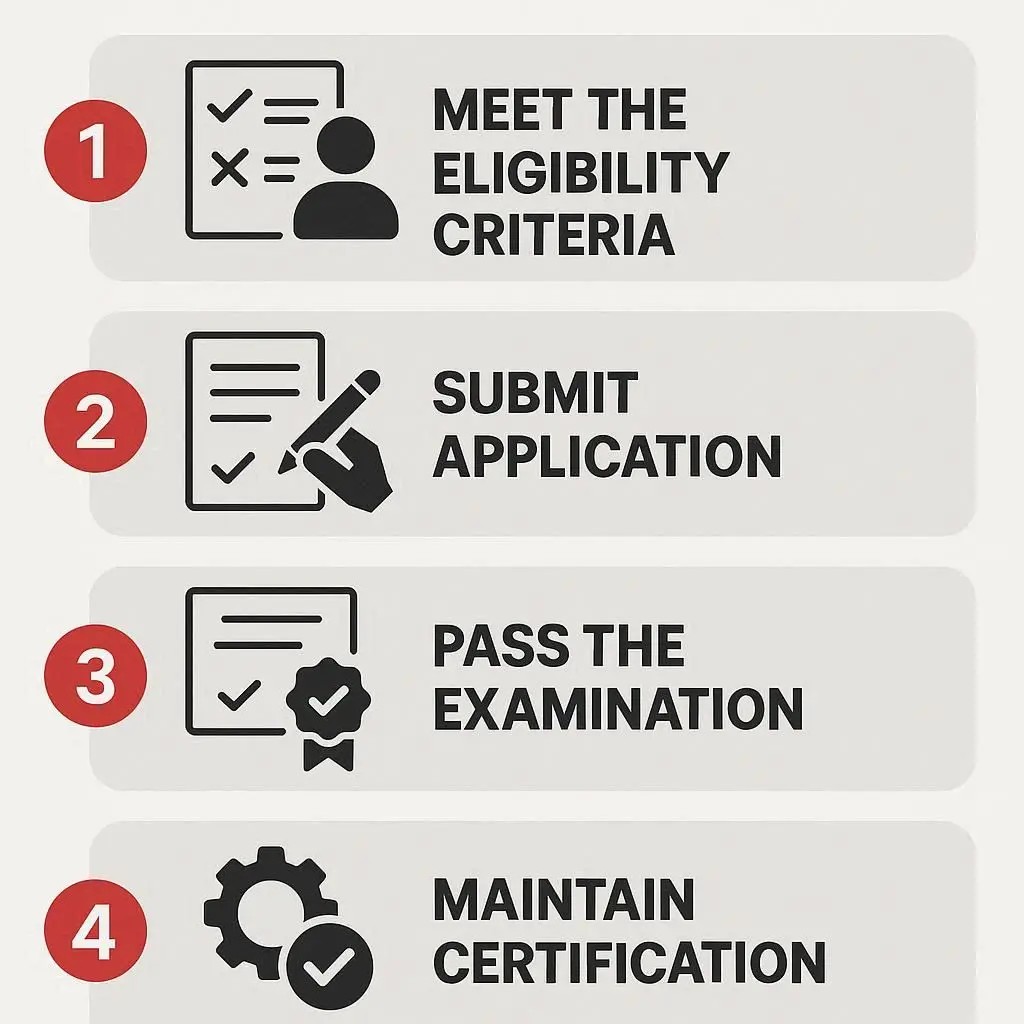
What Is NFPA Certification?
This guide provides an interactive walkthrough of the National Fire Protection Association (NFPA) certification process. NFPA certifications are globally recognized credentials that validate your expertise in fire, electrical, and building safety. They demonstrate a commitment to safety standards and can significantly enhance your professional standing and career opportunities.
Why Is It Important?
Demonstrated Expertise
Prove your knowledge and skills against benchmarks established by industry leaders and experts.
Career Advancement
Open doors to new job opportunities, promotions, and higher earning potential in a competitive field.
Enhanced Credibility
Gain trust and respect from employers, clients, and peers by holding a nationally recognized credential.
Types of Certifications
The NFPA offers a wide range of certifications tailored to different roles and specializations within the safety industry. Below, you can explore some of the most sought-after programs. This chart illustrates the relative demand for key certifications based on industry data, helping you identify high-value credentials.
Certification Demand Overview
Eligibility Requirements
Each NFPA certification has specific eligibility requirements, typically involving a combination of education and work experience. Use the interactive checker below to get a preliminary idea of your eligibility for a typical program like the Certified Fire Protection Specialist (CFPS). Click the "Start" button to begin.
Interactive Eligibility Checker
Preparation & Exam
Successfully passing an NFPA exam requires structured preparation. The path from application to certification involves several key stages. This interactive timeline outlines the recommended steps. Click on each step to expand it and reveal detailed guidance, resources, and expert tips to help you prepare effectively.
Step 1: Choose Your Certification & Apply
Select the program that aligns with your career goals and submit your application.
Carefully review the candidate handbook for your chosen certification. It contains essential information on exam blueprints, reference materials, and policies. Ensure your application accurately reflects your experience and education to avoid delays.
Step 2: Develop a Study Plan
Create a structured study schedule based on the exam's content areas.
Break down the exam blueprint into manageable topics. Allocate study time based on your familiarity with each area. NFPA offers official training programs and study guides that are highly recommended, as they are tailored to the exam content.
Step 3: Schedule Your Exam
Once you feel prepared, schedule your exam through the designated testing partner.
Schedule your exam well in advance to secure your preferred date and location. Exams are typically computer-based and administered at proctored testing centers. Familiarize yourself with the testing center's rules and regulations beforehand.
Step 4: Take the Exam
Approach exam day with confidence. You've prepared for this.
Get a good night's sleep before the exam. Read each question carefully and manage your time effectively. If you're unsure about a question, mark it for review and return to it later. Trust your knowledge and preparation.
Maintain & Renew
NFPA certifications are valid for a three-year period. To maintain your credential, you must complete a recertification process, which involves earning professional development or continuing education points. This ensures that your knowledge remains current with the latest codes and standards in the industry.
Typical CEU Point Breakdown
Recertification Points
You typically need to earn 50 points over your three-year certification cycle. The chart illustrates a common way these points can be distributed across various professional development activities.
Renewal Application
Before your certification expires, you must submit a renewal application along with documentation of your earned points and the required fee. Track your activities carefully throughout the cycle to make renewal simple.